 W
WNorthern Ireland is one of the four countries of the United Kingdom,, situated in the north-east of the island of Ireland. It was created as a separate legal entity on 3 May 1921, under the Government of Ireland Act 1920. The new autonomous Northern Ireland was formed from six of the nine counties of Ulster: four counties with unionist majorities – Antrim, Armagh, Down, and Londonderry – and two counties with slight Irish nationalist majorities – Fermanagh and Tyrone – in the 1918 General Election. The remaining three Ulster counties with larger nationalist majorities were not included. In large part unionists, at least in the north-east, supported its creation while nationalists were opposed.
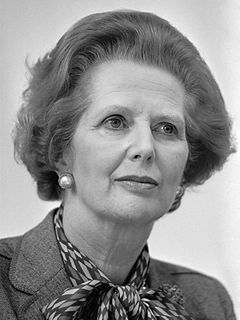 W
WThe Anglo-Irish Agreement was a 1985 treaty between the United Kingdom and the Republic of Ireland which aimed to help bring an end to the Troubles in Northern Ireland. The treaty gave the Irish government an advisory role in Northern Ireland's government while confirming that there would be no change in the constitutional position of Northern Ireland unless a majority of its people agreed to join the Republic. It also set out conditions for the establishment of a devolved consensus government in the region.
 W
WThe Annals of Ulster are annals of medieval Ireland. The entries span the years from AD 431 to AD 1540. The entries up to AD 1489 were compiled in the late 15th century by the scribe Ruaidhrí Ó Luinín, under his patron Cathal Óg Mac Maghnusa, on the island of Senadh-Mic-Maghnusa, also known as Senad or Ballymacmanus Island, near Lisbellaw, on Lough Erne in the kingdom of Fir Manach (Fermanagh). Later entries were added by others.
 W
WThe Apprentice Boys of Derry is a Protestant fraternal society with a worldwide membership of over 10,000, founded in 1814 and based in the city of Derry, Northern Ireland. There are clubs and branches in Ulster and elsewhere in Ireland, Scotland, England, Australia and Toronto, Canada. The society aims to commemorate the 1689 Siege of Derry when Catholic James II of England and Ireland and VII of Scotland laid siege to the walled city, which was at the time a Protestant stronghold. Apprentice Boys parades once regularly led to virulent opposition from the city's Irish nationalist majority, but recently a more conciliatory approach has taken place and now the parades are virtually trouble-free. The 2014 'Shutting of the Gates' parade was described as "the biggest in years" and was violence-free.
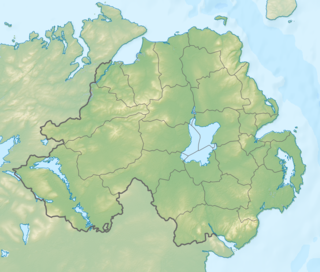 W
WThe border campaign was a guerrilla warfare campaign carried out by the Irish Republican Army (IRA) against targets in Northern Ireland, with the aim of overthrowing British rule there and creating a united Ireland.
 W
WDál Fiatach was a Gaelic dynastic-grouping and the name of their territory in the north-east of Ireland during the Middle Ages. It was part of the over-kingdom of Ulaid, and they were its main ruling dynasty for most of Ulaid's history. Their territory lay in eastern County Down. Their capital was Dún Lethglaise (Downpatrick) and from the 9th century their main religious site was Bangor Abbey.
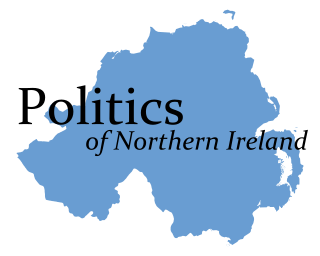 W
WIn Northern Irish politics, direct rule is the administration of Northern Ireland directly by the Government of the United Kingdom. It was practised for 26 straight years between 1972 and 1998 during the Troubles, and has since then been temporarily applied during suspensions. The most recent period of direct rule came to an end on 8 May 2007 when power was restored to the Northern Ireland Assembly following April elections and a power-sharing agreement among major parties.
 W
WThe dissident Irish republican campaign began at the end of the Troubles, a 30-year political conflict in Northern Ireland. Since the Provisional Irish Republican Army called a ceasefire and ended its campaign in 1997, breakaway groups opposed to the ceasefire and to the peace agreements have continued a low-level armed campaign against the security forces in Northern Ireland. The main paramilitaries involved are the Real IRA, Continuity IRA and Óglaigh na hÉireann. They have targeted the Police Service of Northern Ireland (PSNI) and the British Army in gun and bomb attacks as well as with mortars and rockets. They have also carried out bombings that are meant to cause disruption. However, their campaign has not been as intensive as the Provisional IRA's, and political support for groups such as the Real IRA is "tending towards zero".
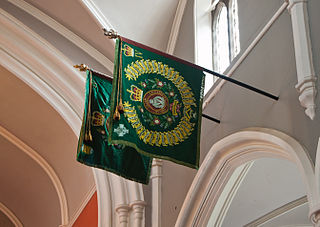 W
WFaugh a Ballagh is a battle cry of Irish origin, meaning "clear the way". The spelling is an 18th-century anglicization of the Irish language phrase Fág an Bealach [ˈfˠaːɡ ənˠ ˈbʲalˠəx], also written Fág a' Bealach. Its first recorded use as a regimental motto was by the 87th Regiment of Foot in 1798. It remains the motto of the Royal Irish Regiment today.
 W
WThe Good Friday Agreement (GFA), or Belfast Agreement, is a pair of agreements signed on 10 April 1998 that ended most of the violence of the Troubles, a political conflict in Northern Ireland that had ensued since the late 1960s. It was a major development in the Northern Ireland peace process of the 1990s. Northern Ireland's present devolved system of government is based on the agreement. The agreement also created a number of institutions between Northern Ireland and the Republic of Ireland, and between the Republic of Ireland and the United Kingdom.
 W
WThe government of Northern Ireland is, generally speaking, whatever political body exercises political authority over Northern Ireland. A number of separate systems of government exist or have existed in Northern Ireland.
 W
WThe Executive Committee or the Executive Committee of the Privy Council of Northern Ireland was the government of Northern Ireland created under the Government of Ireland Act 1920. Generally known as either the Cabinet or the Government, the Executive Committee existed from 1922 to 1972. It exercised executive authority formally vested in the British monarch in relation to devolved matters.
 W
WThe Governor of Northern Ireland was the principal officer and representative in Northern Ireland of the British Monarch. The office was established on 9 December 1922 and abolished on 18 July 1973.
 W
WThe Historical Enquiries Team was a unit of the Police Service of Northern Ireland set up in September 2005 to investigate the 3,269 unsolved murders committed during the Troubles, specifically between 1968 and 1998. It was wound up in September 2014, when the PSNI restructured following budget cuts.
 W
WThe history of the Jews in Ireland extends back nearly a thousand years. Although the Jewish community in Ireland has always been small in numbers, it is well established and has generally been well-accepted into Irish life. Jews in Ireland have historically enjoyed a relative tolerance that was largely absent elsewhere in Europe.
 W
WThe Irish Boundary Commission met in 1924–25 to decide on the precise delineation of the border between the Irish Free State and Northern Ireland. The 1921 Anglo-Irish Treaty, which ended the Irish War of Independence, provided for such a commission if Northern Ireland chose to secede from the Irish Free State, an event that occurred as expected two days after the Free State's inception on 6 December 1922. The governments of the United Kingdom, of the Irish Free State and of Northern Ireland were to nominate one member each to the commission. When the Northern government refused to cooperate, the British government assigned a Belfast newspaper editor to represent Northern Irish interests.
 W
WThe Irish Free State Act 1922 was an Act of the Parliament of the United Kingdom passed on 5 December 1922. The Act dealt with a number of matters concerning the Irish Free State, which was established on the day after the Act became law; it also modified the Government of Ireland Act 1920 in relation to Northern Ireland.
 W
WThe Land Rover Tangi is a type of armoured vehicle, based on the Land Rover chassis and used in policing in Northern Ireland. They were used by the Royal Ulster Constabulary (RUC) and are currently used by their replacement, the Police Service of Northern Ireland (PSNI). The vehicle was designed and built in house by the Royal Ulster Constabulary's own engineers.
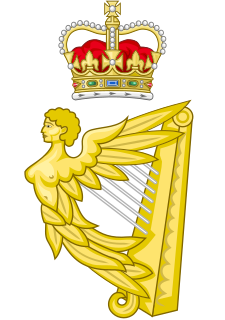 W
WA monarchical system of government existed in Ireland from ancient times until—for what became the Republic of Ireland—the early twentieth century. Northern Ireland, as part of the United Kingdom, remains under a monarchical system of government. The Gaelic kingdoms of Ireland ended with the Norman invasion of Ireland, when the kingdom became a fief of the Holy See under the Lordship of the King of England. This lasted until the Parliament of Ireland conferred the crown of Ireland upon King Henry VIII of England during the English Reformation. The monarch of England held the crowns of England and Ireland in a personal union. The Union of the Crowns in 1603 expanded the personal union to include Scotland. The personal union between England and Scotland became a political union with the enactments of the Acts of Union 1707, which created the Kingdom of Great Britain. The crowns of Great Britain and Ireland remained in personal union until it was ended by the Acts of Union 1800, which united Ireland and Great Britain into the United Kingdom of Great Britain and Ireland from January 1801 until December 1922.
 W
WThe National Graves Association, Belfast is a private Irish republican organisation which undertakes to care for and maintain the graves of some Irish Republican Army volunteers who are buried in Belfast cemeteries. It is a separate organisation from the National Graves Association based in Dame Street, Dublin.
 W
WNorthern Ireland is variously described as a country, province, or region, which is part of the United Kingdom. Located in the northeast of the island of Ireland, Northern Ireland shares a border to the south and west with the Republic of Ireland. In 2011, its population was 1,810,863, constituting about 30% of the island's total population and about 3% of the UK's population. Established by the Northern Ireland Act 1998 as part of the Good Friday Agreement, the Northern Ireland Assembly holds responsibility for a range of devolved policy matters, while other areas are reserved for the British government. Northern Ireland co-operates with the Republic of Ireland in several areas, and the Agreement granted the Republic the ability to "put forward views and proposals" with "determined efforts to resolve disagreements between the two governments".
 W
WThe Northern Ireland Act 1972 was an Act of the Parliament of the United Kingdom that introduced direct rule in Northern Ireland with effect from 30 March 1972.
 W
WThe Northern Ireland Act 1974 was an Act of the Parliament of the United Kingdom that made provision for the government of Northern Ireland following the collapse of the Sunningdale Agreement. The Act authorised the dissolution of the Northern Ireland Assembly, and transferred its legislative powers to the Queen in Council.
 W
WThe Northern Ireland Constitution Act 1973 is an Act of the Parliament of the United Kingdom which received the royal assent on 18 July 1973. The Act abolished the suspended Parliament of Northern Ireland and the post of Governor and made provision for a devolved administration consisting of an Executive chosen by the new Northern Ireland Assembly devised under the Sunningdale Agreement; the Assembly had already been created by the Northern Ireland Assembly Act 1973, passed two months earlier.
 W
WThe Northern Ireland Forum for Political Dialogue was a body set up in 1996 as part of a process of negotiations that eventually led to the Good Friday Agreement in 1998.
 W
WThe O'Cahan were a sept of the Cenél nEógain branch of the Northern Uí Néill in medieval Ireland. The surname is now Anglicised as O'Kane.
 W
WThe Parliament of Northern Ireland was the home rule legislature of Northern Ireland, created under the Government of Ireland Act 1920, which sat from 7 June 1921 to 30 March 1972, when it was suspended because of its inability to restore order during The Troubles, resulting in the introduction of Direct Rule. It was abolished under the Northern Ireland Constitution Act 1973.
 W
WThe partition of Ireland was the process by which the Government of the United Kingdom of Great Britain and Ireland divided Ireland into two self-governing polities: Northern Ireland and Southern Ireland. It took place on 3 May 1921 under the Government of Ireland Act 1920. The Act intended for both home rule territories to remain within the United Kingdom and contained provisions for their eventual reunification. The smaller Northern Ireland was duly created with a devolved government and remained part of the UK. The larger Southern Ireland was not recognized by most of its citizens, who instead recognized the self-declared Irish Republic. Following the Anglo-Irish Treaty, the territory of Southern Ireland left the UK and became the Irish Free State, now the Republic of Ireland.
 W
WThe Privy Council of Northern Ireland is a formal body of advisors to the sovereign and was a vehicle for the monarch's prerogative powers in Northern Ireland. It was modeled on the Privy Council of the United Kingdom.
 W
WThe Protestant Coalition was an Ulster loyalist political party in Northern Ireland. It was registered on 23 April 2013, and launched on 24 April at a hotel in Castlereagh, outside Belfast. It deregistered in November 2015 without contesting any seat.
 W
WFrom 1969 until 1997, the Provisional Irish Republican Army (IRA) conducted an armed paramilitary campaign primarily in Northern Ireland and England, aimed at ending British rule in Northern Ireland in order to create a united Ireland.
 W
WQuis separabit? is a motto derived from the Vulgate translation of Romans 8:35 :"Quis ergō nōs sēparābit ā cāritāte Christī..."
 W
WThe Royal Ulster Constabulary (RUC) was the police force in Northern Ireland from 1922 to 2001. It was founded on 1 June 1922 as a successor to the Royal Irish Constabulary (RIC) following the partition of Ireland. At its peak the force had around 8,500 officers with a further 4,500 who were members of the RUC Reserve.
 W
WThe Snatch Land Rover is a protected patrol vehicle based on the Land Rover Defender 110 chassis. Intended for general patrolling in low-threat areas, the vehicle was developed in 1992 for use in Northern Ireland. It provides a limited degree of small arms protection for occupants and a limited level of protection from Improvised Explosive Devices and off-route mines.
 W
WThe Third Force was the name given to a number of attempts by Northern Irish politician Ian Paisley, then leader of the Democratic Unionist Party (DUP), to create an Ulster loyalist 'defensive militia'.
 W
WThe Troubles were an ethno-nationalist period of conflict in Northern Ireland that lasted about 30 years from the late 1960s to the late 1990s. Also known internationally as the Northern Ireland conflict, it is sometimes described as an "irregular war" or "low-level war". The conflict began in the late 1960s and is usually deemed to have ended with the Good Friday Agreement of 1998. Although the Troubles mostly took place in Northern Ireland, at times the violence spilled over into parts of the Republic of Ireland, England, and mainland Europe.
 W
WThe Ulster Democratic Party (UDP) was a small loyalist political party in Northern Ireland. It was established in June 1981 as the Ulster Loyalist Democratic Party by the Ulster Defence Association (UDA), to replace the New Ulster Political Research Group. The UDP name had previously been used in the 1930s by an unrelated party, which on one occasion contested Belfast Central.
 W
WUlster Says No was the name and slogan of a unionist mass protest campaign against the provisions of the 1985 Anglo-Irish Agreement which gave the government of the Republic of Ireland an advisory role in the governance of Northern Ireland.
 W
WThe Ulster Workers' Council (UWC) strike was a general strike that took place in Northern Ireland between 15 May and 28 May 1974, during "the Troubles". The strike was called by unionists who were against the Sunningdale Agreement, which had been signed in December 1973. Specifically, the strikers opposed the sharing of political power with Irish nationalists, and the proposed role for the Republic of Ireland's government in running Northern Ireland.
 W
WThe Union of the Crowns was the accession of James VI of Scotland to the thrones of England and Ireland as James I, and the consequential unification for some purposes of the three realms under a single monarch on 24 March 1603. The Union of the Crowns followed the death of James's cousin, Elizabeth I of England, the last monarch of the Tudor dynasty.
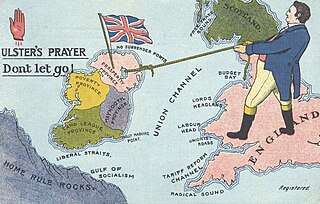 W
WUnionism in Ireland is a political tradition on the island that professes loyalty to the unifying Crown and constitution of the United Kingdom. The overwhelming sentiment of a once ascendant minority Protestant population, in the decades following Catholic Emancipation (1829) it mobilised to oppose the restoration of an Irish parliament. As "Ulster unionism," in the century since Partition (1921), its commitment has been to the retention within the United Kingdom of the six Ulster counties that constitute Northern Ireland. Within the framework of a peace settlement for Northern Ireland, since 1998 unionists have reconciled to sharing office with Irish nationalists in a devolved administration, while continuing to rely on the connection with Great Britain to secure their cultural and economic interests.
 W
WThe United Kingdom of Great Britain and Ireland was a sovereign state that existed between 1801 and 1922. It was established by the Acts of Union 1800, which merged the kingdoms of Great Britain and Ireland into a unified state. The establishment of the Irish Free State in 1922 led to the country later being renamed to the United Kingdom of Great Britain and Northern Ireland in 1927, which continues to exist.
 W
WThe Workers' Party is a Marxist–Leninist political party active in both the Republic of Ireland and Northern Ireland.